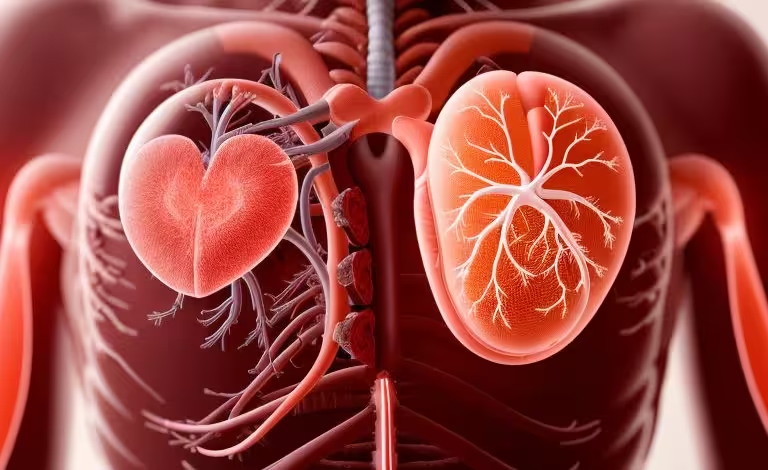7 Effective Heart Blockage Remedies You Can Try Today

7 Effective Heart Blockage Remedies You Can Try Today
Heart blockage, also known as coronary artery disease, is a serious condition that can impact your heart’s ability to function properly. It happens when the arteries that supply blood to your heart become narrowed or blocked, which can lead to chest pain, heart attacks, and other severe complications. While medical treatments are crucial, there are several natural and lifestyle remedies that can support your heart health and possibly help prevent or manage heart blockage. Let’s dive into seven effective heart blockage remedies you can start incorporating into your daily life right now!
1. Embrace a Heart-Healthy Diet
What to Eat
Eating a heart-healthy diet is one of the most effective ways to manage and prevent heart blockage. Focus on incorporating foods rich in antioxidants, fiber, and healthy fats. Here’s what you should include in your diet:
- Fruits and Vegetables: Aim for a variety of colors on your plate. Berries, apples, oranges, spinach, and kale are excellent choices.
- Whole Grains: Opt for whole grains like brown rice, oatmeal, and whole wheat bread instead of refined grains.
- Lean Proteins: Include lean meats such as chicken and turkey, as well as plant-based proteins like beans, lentils, and tofu.
- healthy fats: Use olive oil, avocado, and nuts to get your dose of healthy fats. Omega-3 fatty acids from fish like salmon can also be beneficial.
Foods to Avoid
To keep your heart in top shape, it’s important to limit or avoid:
- Trans Fats and Saturated Fats: These are often found in fried foods, baked goods, and processed snacks.
- Excess Salt: High sodium intake can raise blood pressure, adding strain to your heart.
- Sugary Foods and Drinks: Excess sugar can lead to weight gain and other health issues that affect heart health.
2. Regular Physical Activity
Why Exercise Matters
Regular exercise is a cornerstone of heart health. Physical activity helps strengthen the heart muscle, improve blood circulation, and manage weight. Aim for at least 150 minutes of moderate aerobic exercise or 75 minutes of vigorous exercise per week. Here are some easy ways to get moving:
- Walking: A daily walk around your neighborhood or park can make a big difference.
- Cycling: Whether you’re on a bike path or using a stationary bike, cycling is great for cardiovascular health.
- Swimming: This full-body workout is gentle on the joints while providing excellent cardio benefits.
- Strength Training: Incorporate light weights or resistance bands to build muscle and support overall health.
Tips for Staying Active
- Find Activities You Enjoy: Choose exercises that you find fun and motivating.
- Set Realistic Goals: Start with small, achievable goals and gradually increase your activity level.
- Stay Consistent: Aim for regular workouts, but listen to your body and rest as needed.
3. Maintain a Healthy Weight
Why Weight Matters
Carrying excess weight can increase your risk of heart disease and make managing heart blockage more challenging. Losing even a small amount of weight can have significant health benefits. Here’s how to manage and achieve a healthy weight:
- Balanced Diet: Combine a heart-healthy diet with portion control to maintain or lose weight.
- Regular Exercise: Incorporate both aerobic and strength-training exercises to support weight management.
- Hydration: Drink plenty of water throughout the day to stay hydrated and support your metabolism.
Healthy Weight Tips
- Track Your Progress: Use a journal or app to monitor your food intake and physical activity.
- Set Realistic Goals: Aim for gradual weight loss rather than quick fixes.
- Seek Support: Consider joining a weight loss group or working with a nutritionist or personal trainer.
4. Manage Stress Effectively
The Impact of Stress
Chronic stress can negatively affect your heart health by raising blood pressure and contributing to unhealthy behaviors like overeating or smoking. Managing stress effectively is crucial for maintaining a healthy heart. Here are some stress-reduction techniques:
- Meditation: Regular meditation can help calm your mind and reduce stress levels.
- Deep Breathing: Practice deep breathing exercises to relax and improve oxygen flow.
- Yoga: Incorporate yoga into your routine to combine physical activity with relaxation techniques.
- Hobbies: Engage in activities you enjoy, such as reading, gardening, or listening to music, to unwind and de-stress.
Tips for Stress Management
- Create a Relaxation Routine: Set aside time each day for relaxation and self-care.
- Stay Connected: Maintain relationships with friends and family for emotional support.
- Seek Professional Help: If stress becomes overwhelming, consider speaking with a mental health professional.
5. Quit Smoking and Limit Alcohol
The Effects of Smoking
Smoking is a major risk factor for heart disease and can contribute to heart blockage. Quitting smoking can significantly improve your heart health and overall well-being. Here’s how to kick the habit:
- Seek Support: Consider joining a smoking cessation program or seeking help from a healthcare provider.
- Use Nicotine Replacement: Nicotine patches or gum can help reduce cravings and withdrawal symptoms.
- Avoid Triggers: Identify and avoid situations that trigger your smoking urge.
Alcohol Consumption
Excessive alcohol consumption can also negatively impact heart health. Aim to limit your alcohol intake to moderate levels:
- Moderation: For women, this means up to one drink per day; for men, up to two drinks per day.
- Healthier Choices: Opt for lighter beverages and avoid sugary mixers.
6. Regular Health Check-Ups
Why Regular Check-Ups Matter
Regular health check-ups are essential for monitoring your heart health and detecting potential issues early. Your healthcare provider can help manage risk factors and provide personalized advice for preventing heart blockage. Be sure to:
- Get Routine Screenings: Regular blood pressure, cholesterol, and blood sugar checks are important.
- Follow Medical Advice: Adhere to any prescribed treatments or lifestyle recommendations from your healthcare provider.
- Discuss Concerns: Talk openly with your doctor about any symptoms or concerns you may have regarding your heart health.
Preparing for Check-Ups
- Keep Records: Maintain a record of your health history, medications, and any symptoms.
- Ask Questions: Don’t hesitate to ask your healthcare provider questions about your heart health and treatment options.
- Stay Informed: Educate yourself about heart health and stay updated on new research and guidelines.
7. Stay Hydrated
The Importance of Hydration
Proper hydration is crucial for maintaining overall health and supporting heart function. Water helps regulate blood pressure, support kidney function, and maintain blood volume. Here’s how to stay hydrated:
- Drink Water Regularly: Aim for at least eight 8-ounce glasses of water per day.
- Monitor Hydration Levels: Pay attention to your body’s signals, such as thirst and urine color, to ensure adequate hydration.
- Include Hydrating Foods: Eat water-rich foods like cucumbers, oranges, and watermelon to boost your hydration levels.
Hydration Tips
- Carry a Water Bottle: Keep a reusable water bottle with you throughout the day.
- Set Reminders: Use phone apps or alarms to remind yourself to drink water regularly.
- Avoid Excessive Caffeine: Limit caffeine and alcohol consumption, as they can contribute to dehydration.
Incorporating these seven effective heart blockage remedies into your lifestyle can make a significant difference in your heart health. From eating a heart-healthy diet to staying active and managing stress, each remedy plays a crucial role in supporting your cardiovascular system and preventing heart blockage. Remember to consult with your healthcare provider before making major changes to your health routine, and stay proactive about your heart health. By making these positive changes, you’re taking important steps towards a healthier and happier life.
Subscribe Now
Enroll for our free updates

Thank You for Subscribing
Thanks for Updating Your Information



